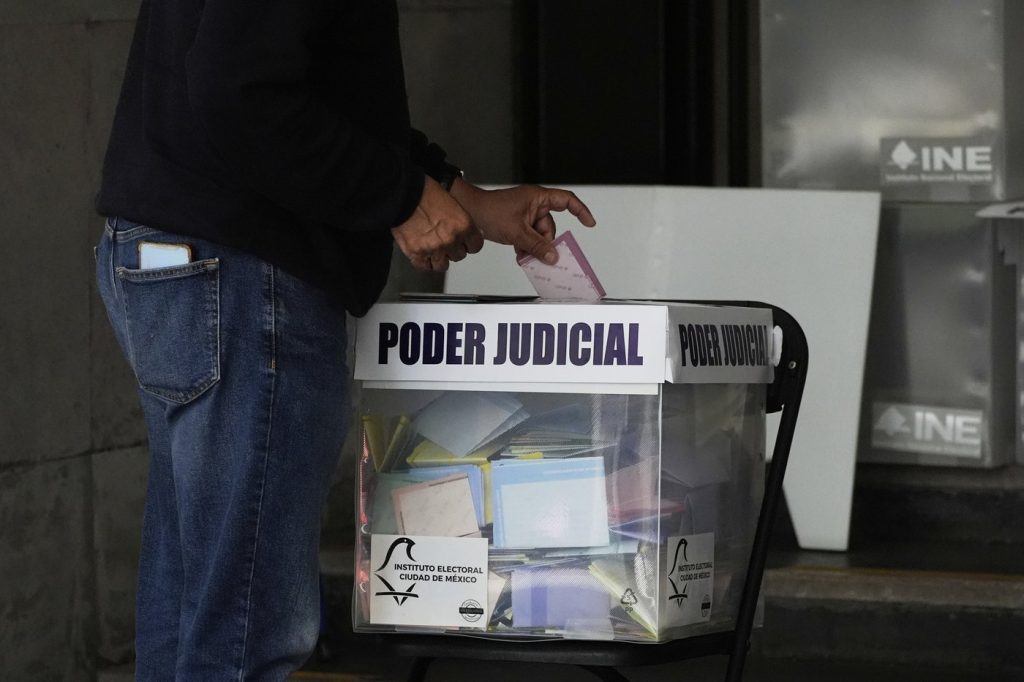MEXICO CITY (AP) — Hugo Aguilar, a lawyer from the Mixtec community in Oaxaca, has emerged as a significant figure in Mexican history following his election as the first Indigenous Supreme Court justice in nearly 170 years. His campaign was grounded on the promise of giving Indigenous Mexicans a voice in the judiciary, a commitment he reaffirmed by stating, “It’s our turn as Indigenous people to make decisions in this country.”
Aguilar's election coincided with Mexico's first judicial elections on June 1, 2025, a process characterized by controversy and a low voter turnout of approximately 13%. Critics have pointed out that the election was manipulated by the ruling party, Morena, under President Andrés Manuel López Obrador, who reshaped the judicial system from one of appointment based on experience to public elections. Proponents argue that this change was intended to curb corruption within the courts, although many see it as an effort to consolidate political control over the judiciary.
Despite the contentious nature of his election, Aguilar garnered more than 6 million votes, more than any other candidate, raising the potential for him to not only serve on the Supreme Court but also to lead it. President Claudia Sheinbaum has praised Aguilar, highlighting his qualifications and experience working on Indigenous rights. However, skepticism exists regarding his affiliations with Morena, with some Indigenous leaders questioning whether he will prioritize the interests of Indigenous communities or the objectives of the ruling party.
Aguilar’s history reflects a deep-rooted commitment to advocating for Indigenous rights. He began his career with SERmixe, an organization dedicated to Indigenous advocacy, where he worked for free while pursuing his law degree. Throughout his career, he has been involved in significant reforms aimed at recognizing the rights of Indigenous peoples, particularly after the Zapatista uprising in 1994, which aimed to address long-standing injustices faced by these communities.
However, his association with the Morena party has raised concerns among some Indigenous advocates. Critics argue that Aguilar’s collaboration with the government in projects like the controversial Maya Train threatens Indigenous rights and environments. The train, which has led to environmental degradation and social discontent, particularly among communities in the Yucatan peninsula, is cited by critics as evidence of Aguilar’s questionable allegiance to Indigenous interests.
Additionally, the perception of Aguilar as a true representative of Indigenous people is further complicated by statements from figures like Francisco López Bárcenas, a fellow Mixtec lawyer. He emphasizes that while Aguilar is indeed an Indigenous candidate, his role and contributions to the ruling party complicate his position. Others, such as Romel González Díaz from the Xpujil Indigenous Council, echo these concerns, doubtful of Aguilar’s ability to genuinely advocate for Indigenous rights given his past government affiliations and the political context under which he was elected.
In summary, while Hugo Aguilar’s election to the Supreme Court marks a historic milestone for Indigenous representation in Mexico, it is marred by controversy surrounding his ties to the governing party and the practical implications of his role for Indigenous rights. The reactions from both supporters and critics illustrate a landscape of hope yet challenge, encapsulating the complexity of Indigenous representation in contemporary Mexican politics.











